As the harvest season approach, Ap Dorji Rinchen, a resident of Toedwang gewog in Punakha, can finally rest without sacrificing his sleep to guard his six acres of wetland from wild boars and other animals. Earlier,the community had built 11 temporary sheds around the fields for protection,with each household taking turns to monitor the crops overnight.
Now with the introduction and support of electric fencing by the RSPN, the situation has improved significantly. This intervention, which covers six villages has benefited 42 households and protects around 90 acres of farmland. The 17-kilometre stretch of fencing with a total budget of Nu 2.5 million was inaugurated on September 30th,2024.
Prior to the project’s implementation, the local residents were felling trees from the nearby banks of the Phochhu River to use as fencing poles. The resident shared that led to the habitat disturbance of local wildlife including the critically endangered White-bellied Heron (WBH) and highlighted the need for sustainable solutions to protect both the environment and the community’s livelihoods.
Currently, the High-Density Poly-ethylene (HDPE) pipes are used for the electric fence. The HDPE poles not only reduce the impact on local forests but also enhance the durability and effectiveness of the fencing system.
Last year, the WBH juvenile was spotted in Samdingkha area which shows that with the restoration and habitat improvement intervention, the WBH comes back to its natural habitat.
This activity is a part of IKI Project “Developing Ecosystem-based Solutions for Managing Biodiversity landscapes in Bhutan” funded by the Federal Ministry for the Environment, Nature Conservation, Nuclear Safety and Consumer Protection (BMUV), Germany through International Climate Initiative (IKI) with co-funding from MAVA Foundation, Switzerland and the Royal Society for Protection of Nature (RSPN).
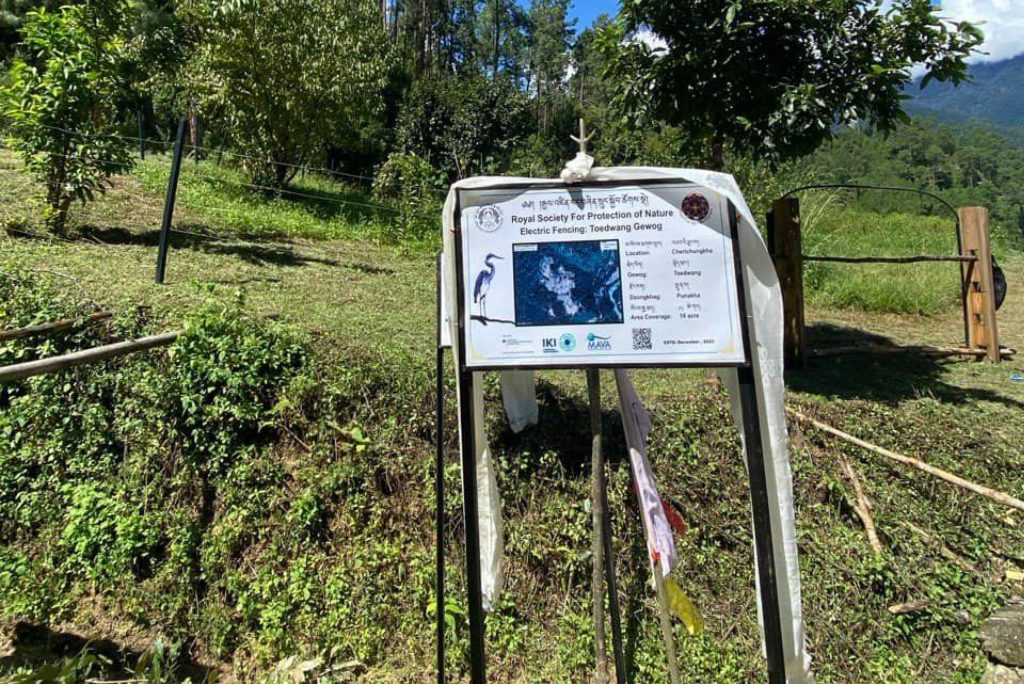
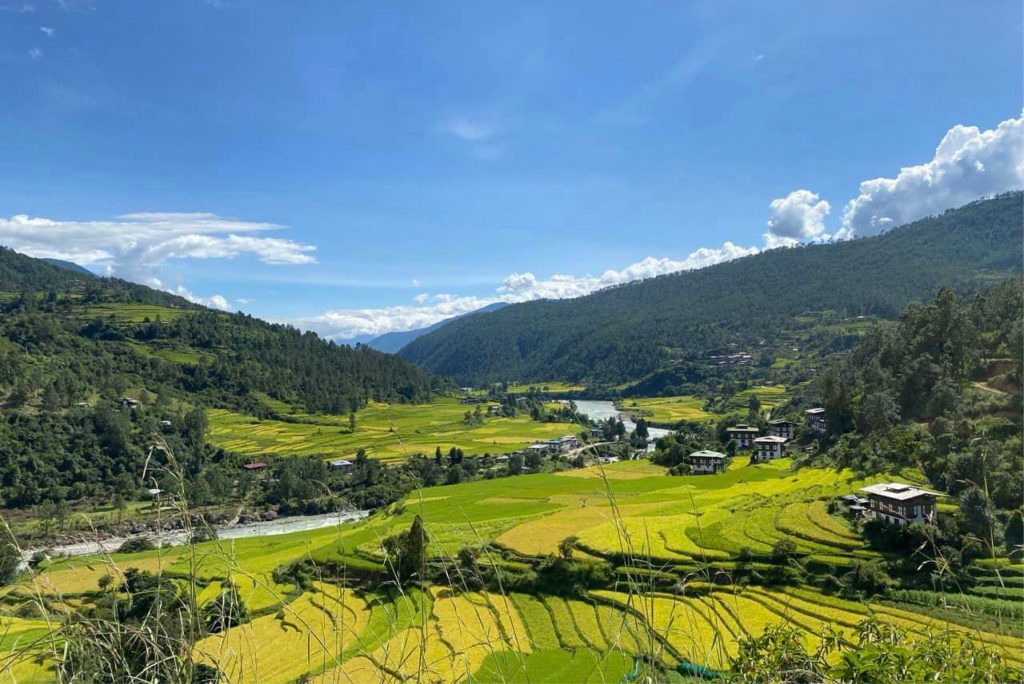
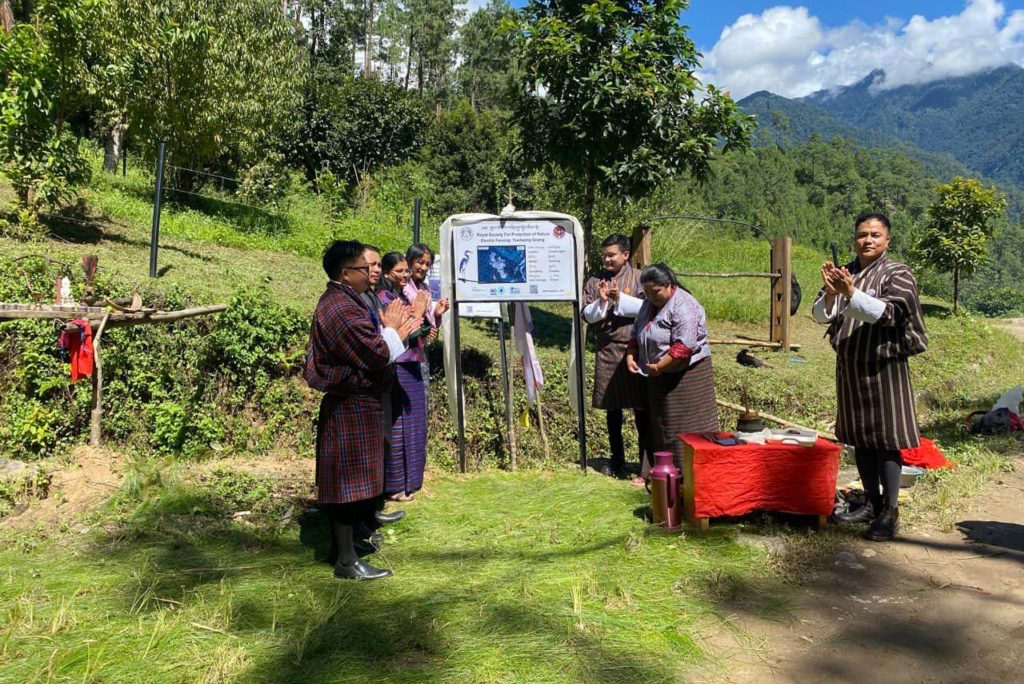
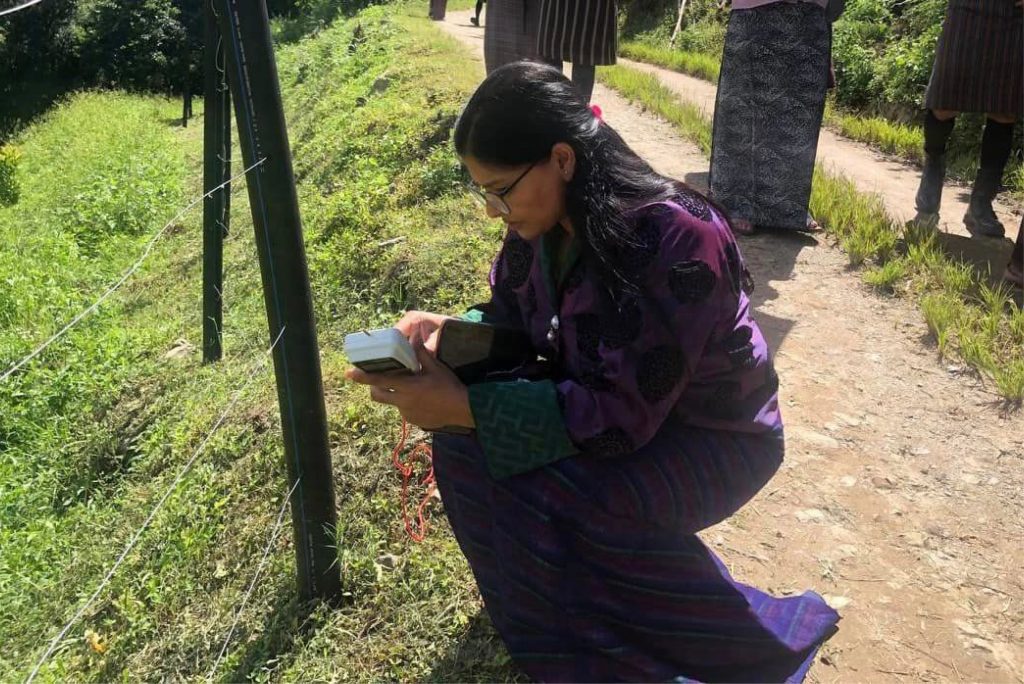
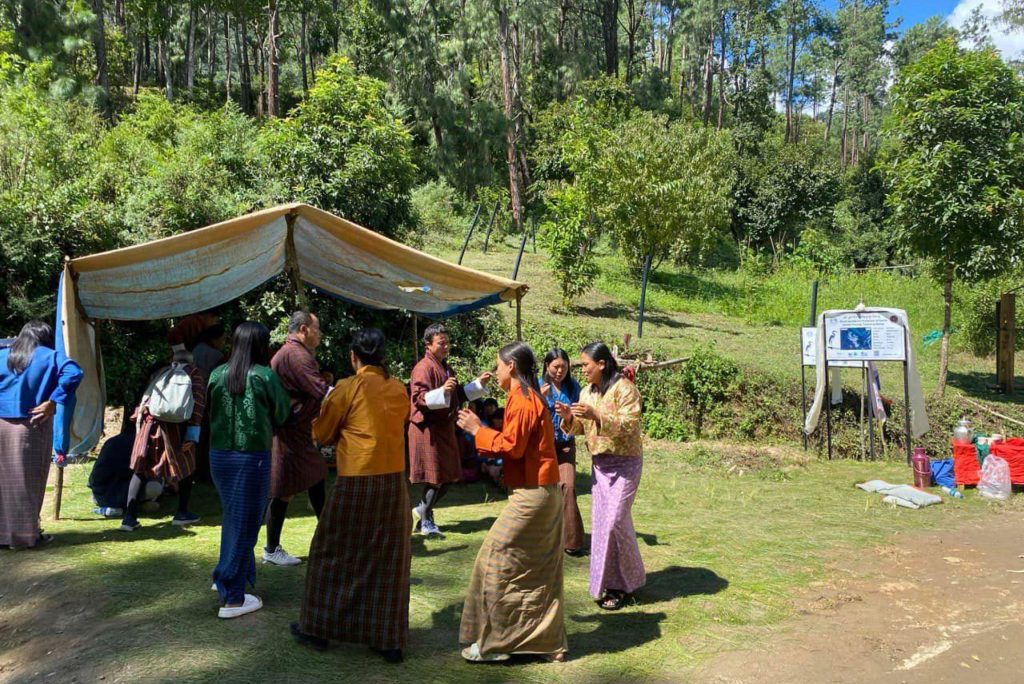
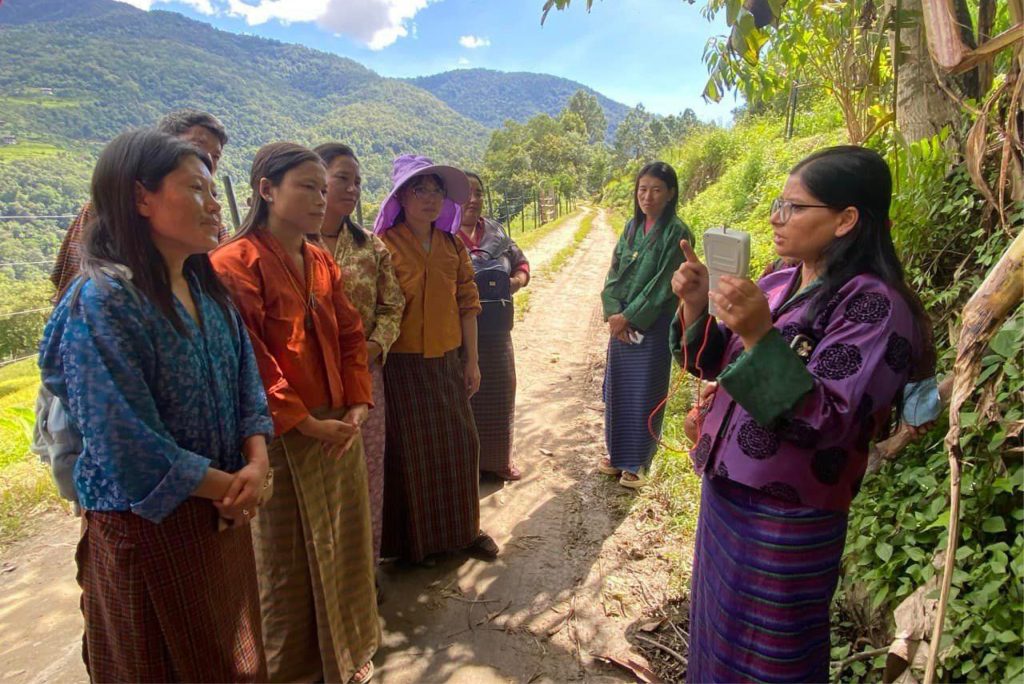
Copyright © 2026 RSPN All Rights Reserved